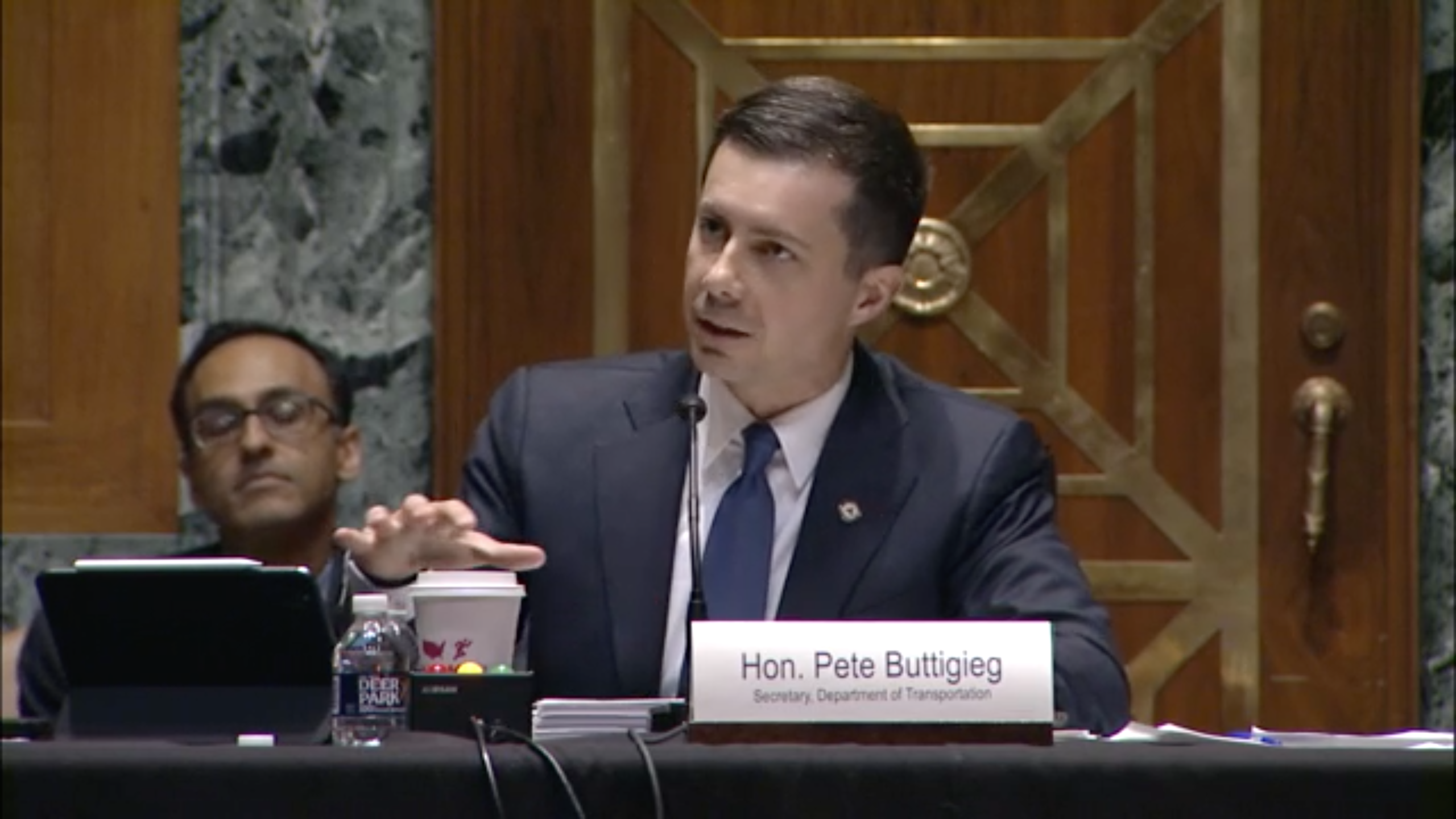After the recent approval of a bill boosting U.S. Dept. of Transportation infrastructure funding by $8.7 billion this year, congressional appropriators from both parties are urging DOT Secretary Elaine Chao to move the funds rapidly to state and local agencies, particularly for new transit projects.
Transit funding came up repeatedly during Chao’s appearances before appropriations subcommittees that oversee DOT spending—in the Senate on April 11 and in the House the following day. Chao told the lawmakers her goal is to get the funds out but also noted that the time pressure is tight.
In the 2018 omnibus spending package, enacted on March 23, appropriators hiked the Federal Transit Administration's capital investment grants by about 10% over last year's level, to more than $2.6 billion. President Trump proposed a deep cut for 2018 and 2019 for the program, which funds new transit-line starts and other projects.
Besides rejecting Trump's proposed 2018 reduction, the lawmakers also took the unusual step of including language in the omnibus directing DOT to obligate $2.3 billion of the $2.6 billion for the transit grants by Dec. 31, 2019.
House transportation appropriations subcommittee Chairman Mario Diaz-Balart (R-Fla.) said at the transit capital grant account "is a program that's gotten wide bipartisan support."
Diaz-Balart said the language setting a 2019 obligation deadline for the transit grants was inserted "because we wanted to show how important it is to use that money, to put it to good use as soon as we can." He added, "There are many critical projects that are ready to go and waiting for the federal commitment."
Senate subcommittee Chairman Susan Collins (R-Maine) said, “Communities often wait years to receive approval for these projects after a rigorous evaluation process, and any delays will lead to cost increases.”
Collins added, “I know that the secretary personally is deeply concerned about eliminating unnecessary delays and cutting red tape for all infrastructure projects and so I hope that the department will be able to move projects to completion more quickly, going forward.”
The Senate panel's top Democrat, Jack Reed (R.I.), also called on Chao to act quickly, especially on transit funds, which he said have been “unnecessarily delayed" —a situation that he called “unacceptable.”
Chao responded, “It is my goal to do the will of Congress. So you have given us the money and we’re going to look at these specific projects and I hope they’ll be ready."
The dispute between members of Congress and the Trump administration over the New York City-northern New Jersey Gateway rail improvement program also surfaced at the hearings. The omnibus has some funding for the $12-billion program, its supporters say. But House Speaker Paul Ryan (R-Wis.) has said the Trump administration will be in charge of approving the funds.
At the House hearing, full Appropriations Committee Chairman Rodney Frelinghuysen (R- N.J.), a strong Gateway advocate, said, "I remain angered by the administration's opposition and very calculated indifference towards the [Gateway] project and this posture from the administration, which claims to be infrastructure-centric, is totally unacceptable."
Also resurfacing was a difference of opinion between Chao and pro-Gateway lawmakers over the use of federal Transportation Infrastructure Finance and Innovation Act (TIFIA) loans as one funding source. Gateway backers say TIFIA loans should be counted as part of the nonfederal share; Chao disagrees, saying it is part of the federal share.
Collins and other appropriators praised DOT's TIGER grant program, which the Trump administration proposed canceling in its 2018 and 2019 budget requests. As with the transit-grant account, appropriators spurned Trump’s 2018 TIGER proposal. Instead, they tripled the program’s funding, to $1.5 billion this year. That's a strong indicator that lawmakers again won’t go along with Trump’s zero-dollar request for TIGER in 2019.
At the Senate hearing, Chao acknowledged, "The popularity of the TIGER grants is made known to us very well.”





Post a comment to this article
Report Abusive Comment